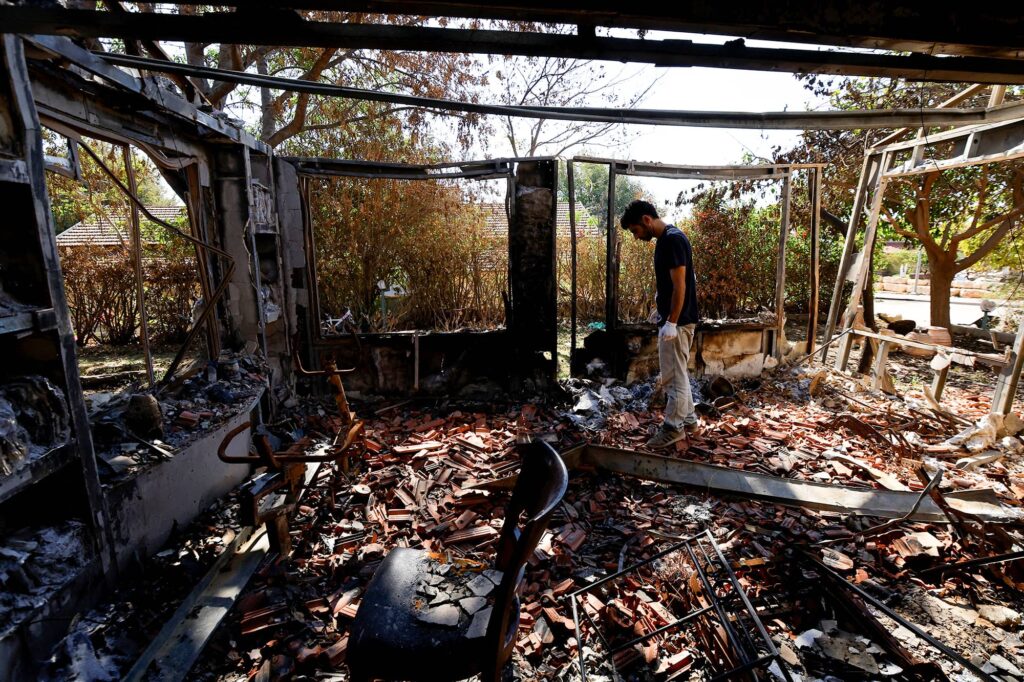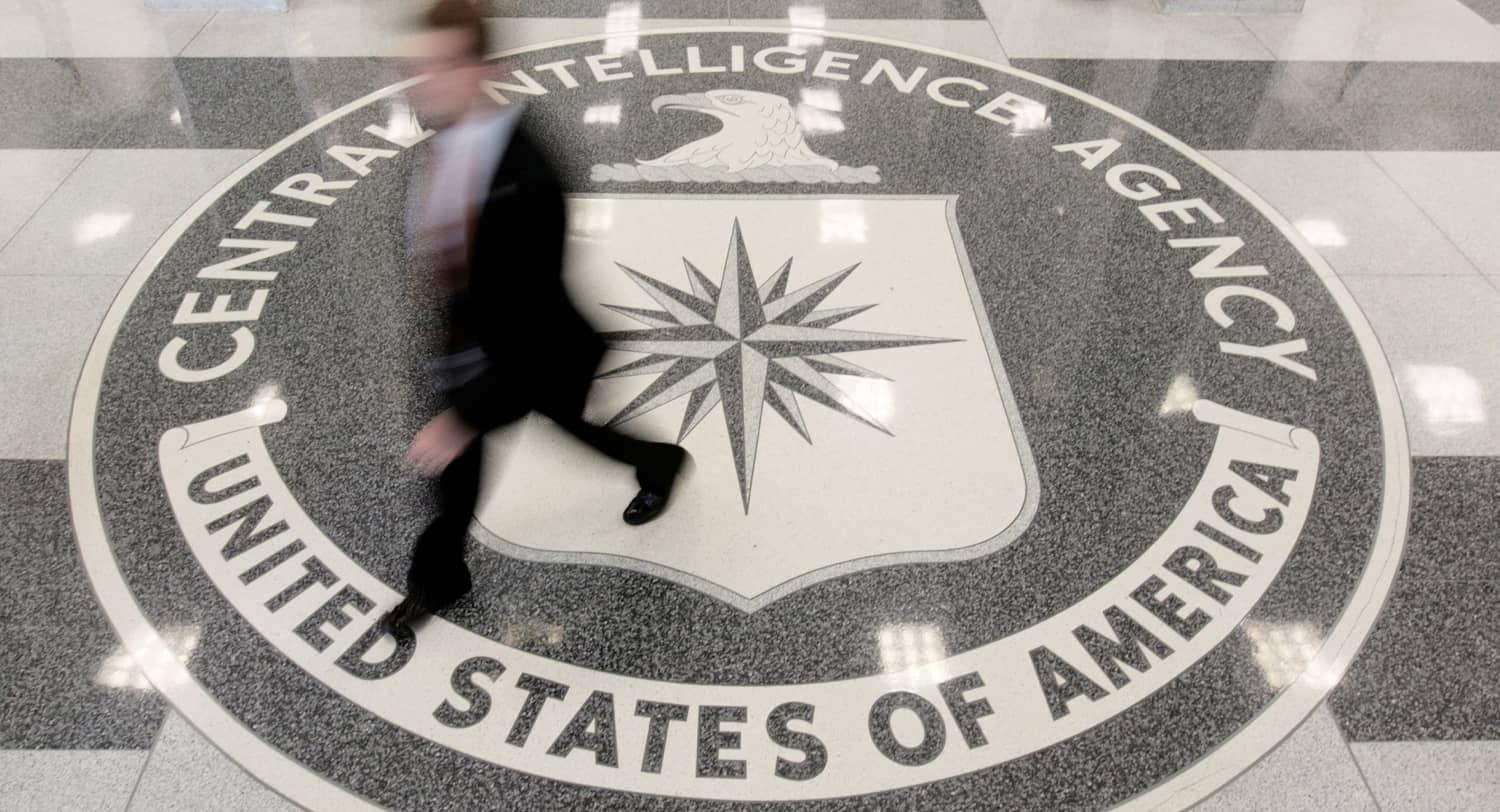The surprise was total and horrific—Israeli men, women and children brutally killed or taken hostage by Hamas on October 7, 2023. Israel’s vaunted intelligence services failed to provide adequate warning, its military—the Israeli Defense Forces—failed to provide adequate security, and Israeli political leadership remained cocooned in their comfortable assumptions about risks to Israeli security posed by Palestinians in Gaza and the West Bank.
But Israelis are hardly unique in succumbing to surprise. Every U.S. president from Franklin Roosevelt at Pearl Harbor to Donald Trump with the COVID pandemic, to Joe Biden with the fall of Kabul, has confronted surprising events, with strategic implications.
Of course, not all surprises are bad. The fall of the Berlin Wall in 1989 was largely unanticipated and a good news event with positive implications for Germany, Europe and the world.
The futurist, Peter Schwartz, writing with Doug Randall, observed about strategic surprises that they are “events that if they were to occur, would make a big difference to the future, force decision makers to challenge their own assumptions about how the world works, and require hard choices today.” George W. Bush entered office convinced that he would focus on great power competition only to discover that the balance of his presidency, after 9/11, was consumed by wars in the Middle East, largely against non-state actors.
The corollary to Schwartz’s definition of surprise is that too frequently the response to surprise can itself have a broader impact than the original event. Recall that nineteen hijackers on 9/11 precipitated the complete and total redirection of U.S. national security policy for at least a decade. Israel’s war with Hamas has now spread across the region, in part because Israel decided it must demonstrate resolute deterrence after having failed to do so before October 7. Threats to Israel from Iran, Yemen, Syria and Lebanon have intensified. And U.S. leaders are once more consumed by events in the Middle East—hardly what President Joseph Biden intended when he took the oath of office in January 2021.
Surprise, of course, can come in many forms. Americans are most familiar with the tactical surprise of a military nature such as the October 7 attack. It is to avoid tactical surprises that much government effort and expense is devoted. But systemic shocks such as the fall of an important leader–or a cataclysmic natural disaster–can also transform national agendas. The effects of the fall of the Shah of Iran in 1979, for example, continue to reverberate not only in the Middle East but also in a variety of other regions of the world. Finally, what have been termed tectonic shifts can also be strategically significant and surprising in their broader consequences. The contemporary rise of China is a case in point.
Sometimes the intelligence community (IC) provides timely and actionable warning as it did prior to Russia’s invasion of Ukraine in 2022. But sometimes a failure to issue a warning has dire consequences and exposes faulty assumptions. The Annual Threat Assessment of the U.S. Intelligence Community released to the public February 6, 2023, did not mention Hamas. This omission was compounded when National Security Advisor, Jake Sullivan, in remarks likely vetted by the IC and penned days before October 7, 2023, stated in Foreign Affairs magazine of the Middle East that, “the region is quieter than it has been in decades.”
What explains these failures to anticipate? One possibility was that America’s IC was overly reliant on Israel’s well-regarded intelligence services to sound alarms about Palestinian unrest. U.S. intelligence services were necessarily focussed on Russia-Ukraine, China, and the cyber and technology threats of the future. Inevitably, tough choices have to be made about the deployment of finite surveillance capabilities. Invariably, ramping up surveillance in one region means accepting higher risk in others. Global coverage of possible threats to U.S. interests cannot be uniform.
It is also possible that the IC warned–but policymakers did not listen and act. In 2014 the IC was accused of being slow to warn about the rise of ISIS and the Obama Administration was criticized for being slow to react to warnings when they came. Then director of National Intelligence, James Clapper, admitted in an interview with Washington Post columnist David Ignatius on September 18, 2014, “what we didn’t do was predict the will (of ISIS) to fight.” Similarly, few predicted Hamas’ “will to fight” on October 7, 2023.

More surprises are coming. On February 5, 2024 the IC issued the third annual threat assessment of the Biden era. It makes for ominous reading, cataloging threats from a variety of states: Russia, China, Iran, North Korea; non-state actors: global terrorism, transnational organized crime; and transnational issues: from disruptive technology to the environment to health security. What are we missing? What might trigger a broader disruption?
Americans can be slow to address emerging threats, even when they are clearly identified in a timely fashion. The IC and other analytic entities in and out of government can warn but will policy makers listen and act?
It is hardly surprising that harried policy makers, preoccupied by conflicts in the Middle East and Europe, would not be eager to carve out time each week to think rigorously about future disruptive events. In fact, every administration since World War II has been captives of their inboxes. The Eisenhower Administration, arguably, was the last to build strategic planning into its national security decision making.
In fairness, the pace of change is far more rapid than in the Eisenhower era, thanks in part to social media which exerts pressure on governments to make rapid decisions. Innovations, such as AI, are outpacing human, political control. We are in uncharted waters–requiring that long-held assumptions be identified and challenged. Not the least of these relates to America’s role in the world. Bill Burns, the director of the CIA, wrote, when he was between government assignments, “that we have drifted into one of those rare periods of transition, with U.S. dominance in the rearview mirror and a more anarchic order looming dimly beyond.”
So called “middle powers”—Turkey, Israel, Iran, India— matter more to the stability of their regions and have the capacity to pull their larger partners into conflicts. Big powers like China and Russia are implementing new and worrisome strategies to put American interests at risk. FBI director Christopher Wray has warned repeatedly that “Chinese government-linked hackers have burrowed into U.S. critical infrastructure and are waiting for the right moment to deal a devastating blow.” The non-state sector, from terrorists to tech moguls, is a disruptor of the status quo.
America find itself in a world of fragmenting authority while nations remain linked as never before by economic ties, movement of peoples, and accelerating and fast dispersing technological capabilities. The Intelligence Community is largely staffed to focus on the urgent and the soon, not the possible and the future. Most analytic attention is devoted to responding to immediate requests from harried policymakers. Anticipating strategic surprise requires that the government anticipate uncomfortable contingencies and set in place the processes and resources to meet them.
What is to be done? Policymakers must demand strategic, over-the-horizon analysis of emerging threats and opportunities, which invariably will be speculative and will posit multiple possible “futures.” They may crave certainty–“actionable intelligence,”–but must also seek analysis which is less about certainty and more about possibility.
On the supply side, the CIA and its sister agencies must do a better job of rewiring a workforce accustomed to believing that all wisdom resides on their classified systems and that all analysis must be grounded in hard evidence. Much of what the analyst of the future will need to know will come from interacting directly with experts and rapidly evolving subject matter disciplines. But, the IC, burned by leaks and fearful of foreign espionage, has erected significant legal, budgetary and bureaucratic encumbrances to outreach beyond the gates of intelligence facilities and has allowed contracts, which facilitated such outreach in the past, to lapse. The National Intelligence Council (where I once worked) is less open to outside input than even a few years ago.
Singapore could provide us with some useful pointers. Long-range thinking is built into government decision making in that small island nation. Successive prime minsters, dating to the legendary Lee Kuan Yew, have demanded it. If Singapore can think ahead, then why not the United States? If President Biden demanded it, the IC would seek to meet the demand—provided the president and his advisors took the time to listen.

